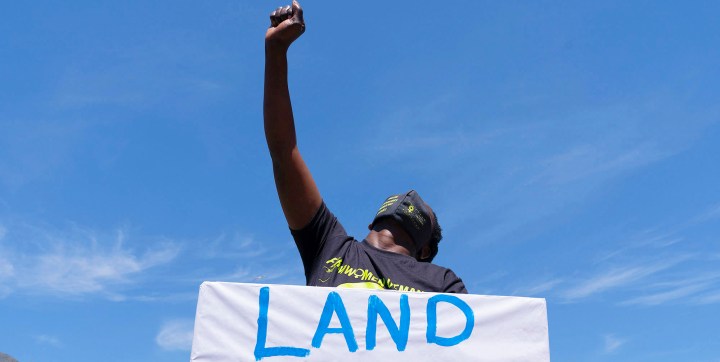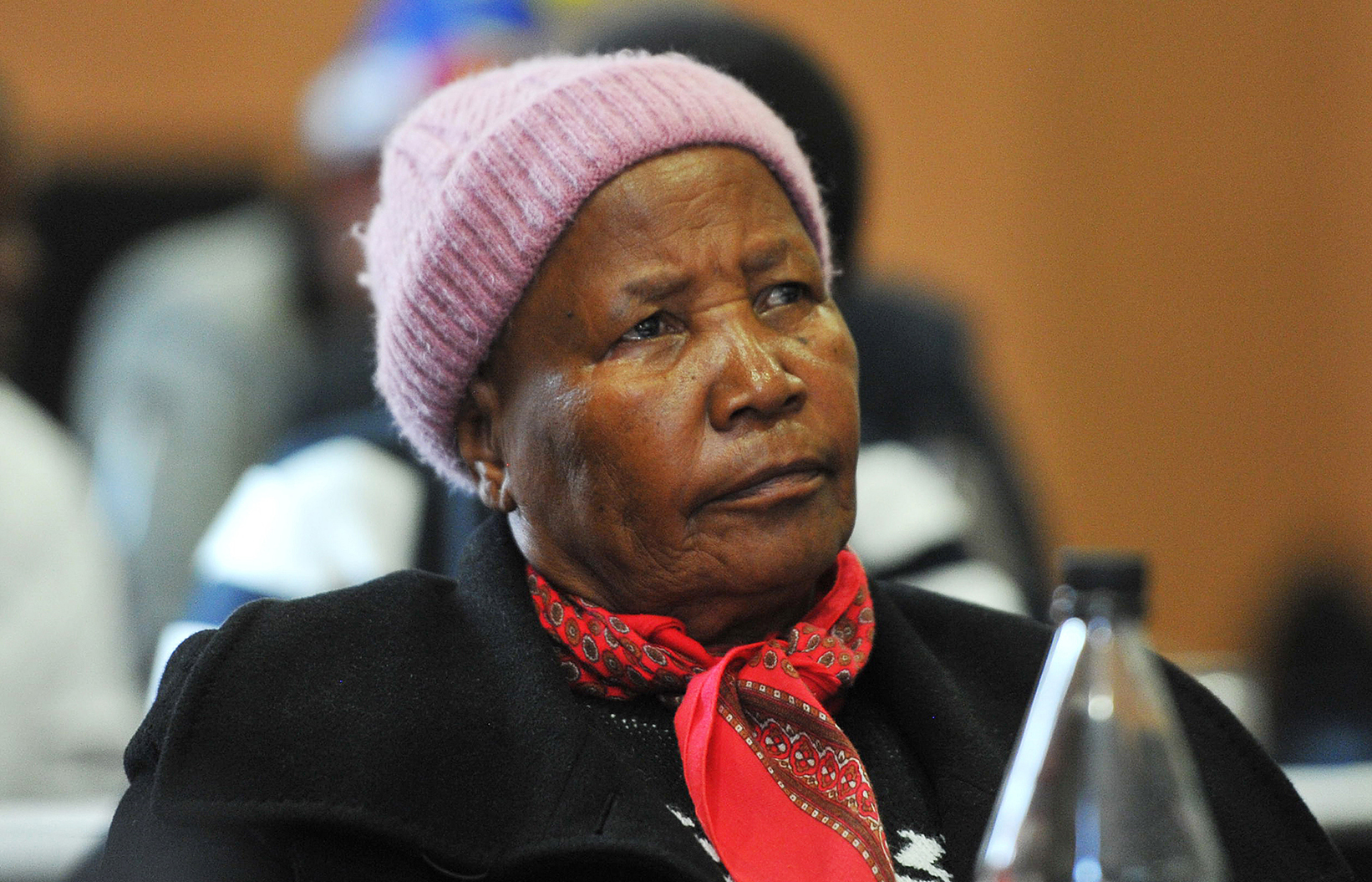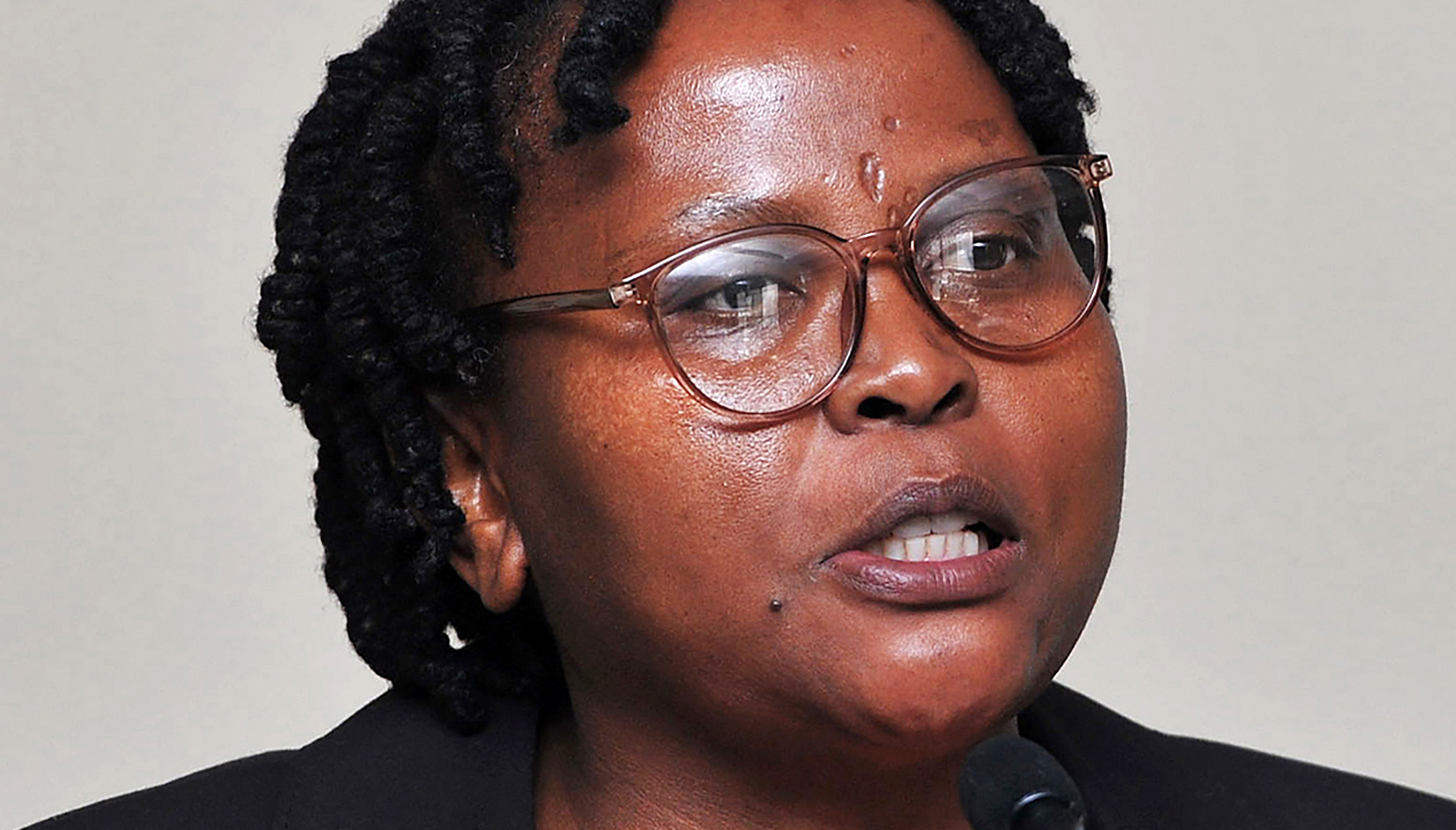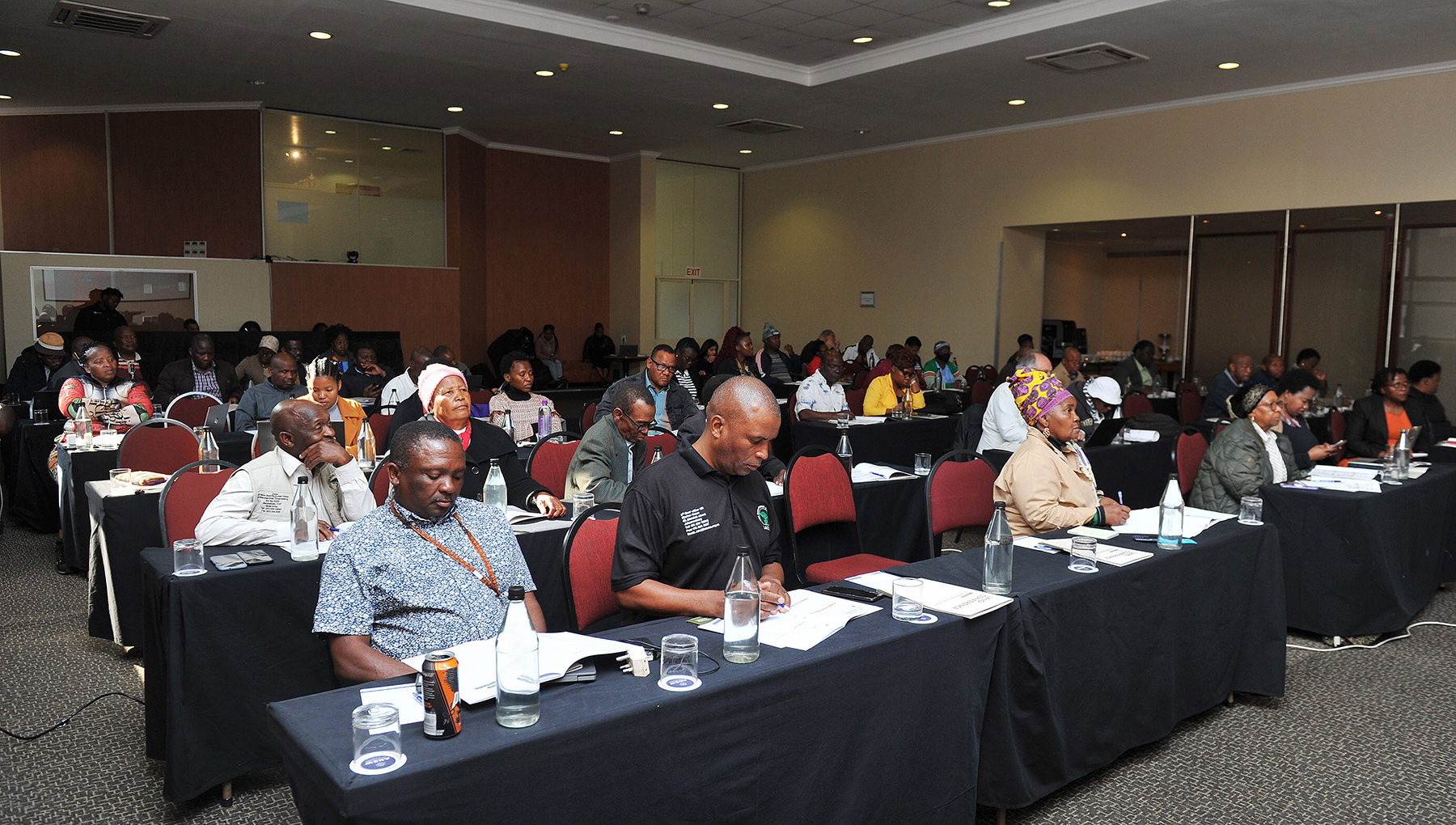COMMUNAL RIGHTS
‘It is our land’ – rural residents reject violent dispossession and call for society-wide solidarity

Citizens of rural communities across the country who are fighting for their land rights are outraged at the government’s treatment of them, likening it to apartheid and colonialism.
Violence, intimidation, assassinations and dispossession are continuing in parts of the country as black South Africans struggle to defend their land rights against moves by the government, often in cahoots with traditional leaders and private companies.
This was the focus of a landmark three-day land conference on The Failed Promise of Tenure Security: Customary Land Rights and Dispossession, a hybrid event where about 450 people attended online, and rural residents, leaders and activists gathered at three in-person venues in Gauteng, KwaZulu-Natal and the Eastern Cape.
The conference from 17 to 19 August – which put into sharp focus the failings of the government and its inability to effectively address the land question – was hosted by a rural social movement, three university research institutes and a human rights law firm.
The state cannot be trusted
Rural residents spoke about their experiences while academics presented research and lawyers analysed laws and judgments. All agreed that, in view of profound levels of state dysfunction and corruption, bungling and inertia, the government cannot be trusted to enact progressive land laws, let alone implement existing laws.
Since the dawn of democracy, rural people have engaged with government processes, policy debates and developing laws – to no avail. Participants observed that, as in colonial and apartheid times, “we cannot fix our problems by talking to the state”.

Grace Maledu – the first applicant in the Maledu judgment which ruled that a mining company granted a mining licence over customary land still requires the consent of the land rights holders – shared her experience at the land conference. (Photo: Denvor de Wee)
And, it seems the government isn’t willing to hold meaningful discussions with communities, as evidenced by its fiasco of a summit on land tenure earlier in 2022.
Residents shared harrowing accounts of how traditional leaders and municipal and national officials participated in apartheid-style land theft – a practice that continues, 28 years into democratic rule. Communal land remains under threat. Yet these struggles are frequently not recognised, even though 18 million people – nearly one in three South Africans – live in these communal areas.
Violence and intimidation
Grace Maledu – the first applicant in the Maledu judgment which ruled that a mining company granted a mining licence on customary land still requires the consent of the land rights holders – gave an impassioned speech about the importance of land.
“I grew up with a strong belief in the land. We saw our land being threatened and I stood up to ensure that we do not allow mines to take our land. There was open-cast mining and that jeopardised our land. I have even been arrested because of that,” she said.
Zibuyisile Zulu, from Matshantsundu in KwaZulu-Natal, echoed Maledu’s sentiments, recounting how the India-based Jindal Mine arrived in their village near Melmoth to speak exclusively to the chief, leaving the residents out of its plans to mine there. When they protested, they were intimidated by the police and mine owners. “We have had to move away from home now. We are not sleeping in our homes. The mine sends hitmen to our communities to assassinate us now,” she said. Zulu appealed to lawyers to help them fight this ongoing case.
Land rights have become a resource that is given to the elites, say rural land activists
The government and officials tasked with implementation are not only unable to help people to defend their land rights but often collude with chiefs and companies to dispossess people, the conference heard. Baby Makgeledisa, a land claimant from Putfontein, North West, illustrated this in her presentation: “Those professional classes in government are colonising our land – more than ever before.”
Women on the frontline
Women at the forefront of struggles to defend family and community land in South Africa’s “communal areas”, gave testimony about the violence and intimidation they face when doing so and when challenging chiefs, companies and government officials. This was the case in Mokopane, Limpopo, where Anglo and other mining companies opted to meet only with traditional leaders, eliminating residents from actively participating in decision-making about issues that directly affect them.

National coordinator for the Alliance for Rural Democracy Constance Mogale speaks at the land conference. (Photo: Denvor de Wee)
Margaret Molomo, an activist from Mokopane, said defiantly: “I told the chief that many people have passed away [defending their land rights], and I will not ever be scared to live at home and from now on I will be waiting for you to attack me.”
Democracy in the way it is practised in South Africa does not work, rural women stated repeatedly, and the government has turned a blind eye to the struggles of people in rural communities.
Activist tells of health issues and assault after removal from land by mining company
In Gwatyu in the Eastern Cape, former farm dwellers who have lived on their land for more than five decades are still victims of repeated violations on the farms they have occupied for generations, while the state would prefer to lease their land to others from under their feet.
Assassination of activists
A remembrance ceremony formed part of the conference, in honour of land rights defenders who have died, including those who were assassinated after resisting attempts by chiefs and government officials to annex community land. In most cases, their murderers have not been charged, let alone convicted, and rural activists say they live in fear.
Visit Daily Maverick’s home page for more news, analysis and investigations
The violence affects urban as well as rural activists. Just hours after the land conference ended on Friday, yet another land rights defender, Abahlali baseMjondolo community leader Lindokuhle Mnguni, was assassinated at his home at eKhenana in Durban – the third this year in that settlement.
Denial of property is a colonial legacy
Global experts weighed in, with experience from around Africa, including leading African intellectual, Ugandan Professor Mahmood Mamdani, now professor of government at Columbia University in New York who is listed among the “World’s Top 50 Thinkers”. His seminal book, Citizen and Subject: Contemporary Africa and the Legacy of Late Colonialism, shows South Africa’s experience with indirect rule via chiefs in a comparative light – and shows that our experience under colonialism and apartheid was in many ways what was done elsewhere.

People from around South Africa at the land conference held in Braamfontien, Johannesburg, on 17 August 2022 (Photo: Denvor de Wee)
Mamdani’s address tackled two big issues: how do we define community, and how do we define powers and accountability? All citizens are entitled to rights and cannot be denied them based on identity. Neither can rights to accountable and democratic governance be withheld in the name of custom.
Communal land
After 27 years since the Constitution was passed, there is still no proper law to define and protect the rights of the people in the former Bantustans or “homelands” – as the Constitution demands. The current draft Communal Land Tenure Bill is unconstitutional, according to advocate Tembeka Ngcukaitobi, speaking on one of the plenary panels at the conference.
This bill, Ngcukaitobi said, shows that the government believes customary land is state land and can be controlled by chiefs through traditional institutions. Yet the Ingonyama Trust judgment last year paid to the notion that communal land is free for the taking and the state can hand it to anyone it chooses. Rural residents themselves are the owners of the land, and should not be conceived as subjects of chiefs or tenants of the trust.
Communal Land Rights Bill ignores community views, conference told
“Instead of transforming existing colonial relations, the risk is that this bill will entrench them. It is a regressive law. The bill further uses a vague notion of ‘community’. This renders the individual and the family invisible,” Ngcukaitobi said.
He added that the bill is neither equalising nor transformational, which goes against what the Freedom Charter states and the Constitution requires.
“We must be explicit in rejecting this bill!”

Dr Dineo Skosana from the Society Work and Politics Institute talked about how dispossession continues in South Africa today and about the intangible losses people experience. (Photo: Denvor de Wee)
Ngcukaitobi suggested rewriting the bill from the bottom up, making sure it reflects the views and lived experiences of the affected communities. Conference participants agreed that instead of fighting for amendments to this flawed bill, they would draft an alternative bill themselves. Core to this is for rural people to define “custom” rather than accepting rules imposed by the state or chiefs.
The law does need fixing, though it’s not enough
The government and Parliament can play their part by going back to the High-Level Panel Report of 2017 and the Presidential Advisory Panel Report of 2019.
Parliament also needs to expand the law on informal land rights and make it permanent. The Interim Protection of Informal Land Rights Act was passed in 1996 as a holding mechanism for one year. It is only elementary. It needs to be permanent and also strengthened. All this has been pending for many years now.
Call to action
We call for collaboration across all spheres of society. Lawyers, academics, civil society members and labour movements, academics and researchers must join forces to address the land question. The conference participants called for:
- Conversations with the Khoi and the San, as fellow travellers in solidarity, and also affected by the Traditional and Khoi-San Leadership Act as a joint struggle for recognition and land rights;
- A common platform across civil society and the labour movement to drive a massive campaign and link rural land struggles to wider campaigns for social justice, urban land and housing, climate justice and social protection;
- A cadre of pro bono lawyers who will be allies in defending rights and in strategic litigation. Major law firms are asked to take on customary land tenure matters; and
- A community of research allies to document, analyse and disseminate the stories of land tenure practices, governance systems and political struggles.
Finally, participants promised to pursue and engage corporate shareholders, within and beyond South Africa, to target those mining companies, pension funds and other companies that profit from this new era of post-apartheid dispossession of black Africans from the land. DM/MC
Nolundi Luwaya and Nokwanda Sihlali are at the Land and Accountability Research Centre (LARC), University of Cape Town; Constance Mogale and Tshepo Fokane are with the Alliance for Rural Democracy; Dineo Skosana is a senior researcher at the Society, Work and Politics Institute (SWOP) at the University of the Witwatersrand; Wilmien Wicomb is an attorney at the Legal Resources Centre; Zenande Booi is at the Center for Race Law and Justice at Fordham University in the US; Sienne Molepo and Constance Mogale are MPhil candidates and Ruth Hall is the DSI/NRF Chair in Poverty, Land and Agrarian Studies, all at the Institute for Poverty, Land and Agrarian Studies (Plaas) at the University of the Western Cape.



















 Become an Insider
Become an Insider
Comments - Please login in order to comment.